Leadership improves at 'toxic' NHS hospital trust
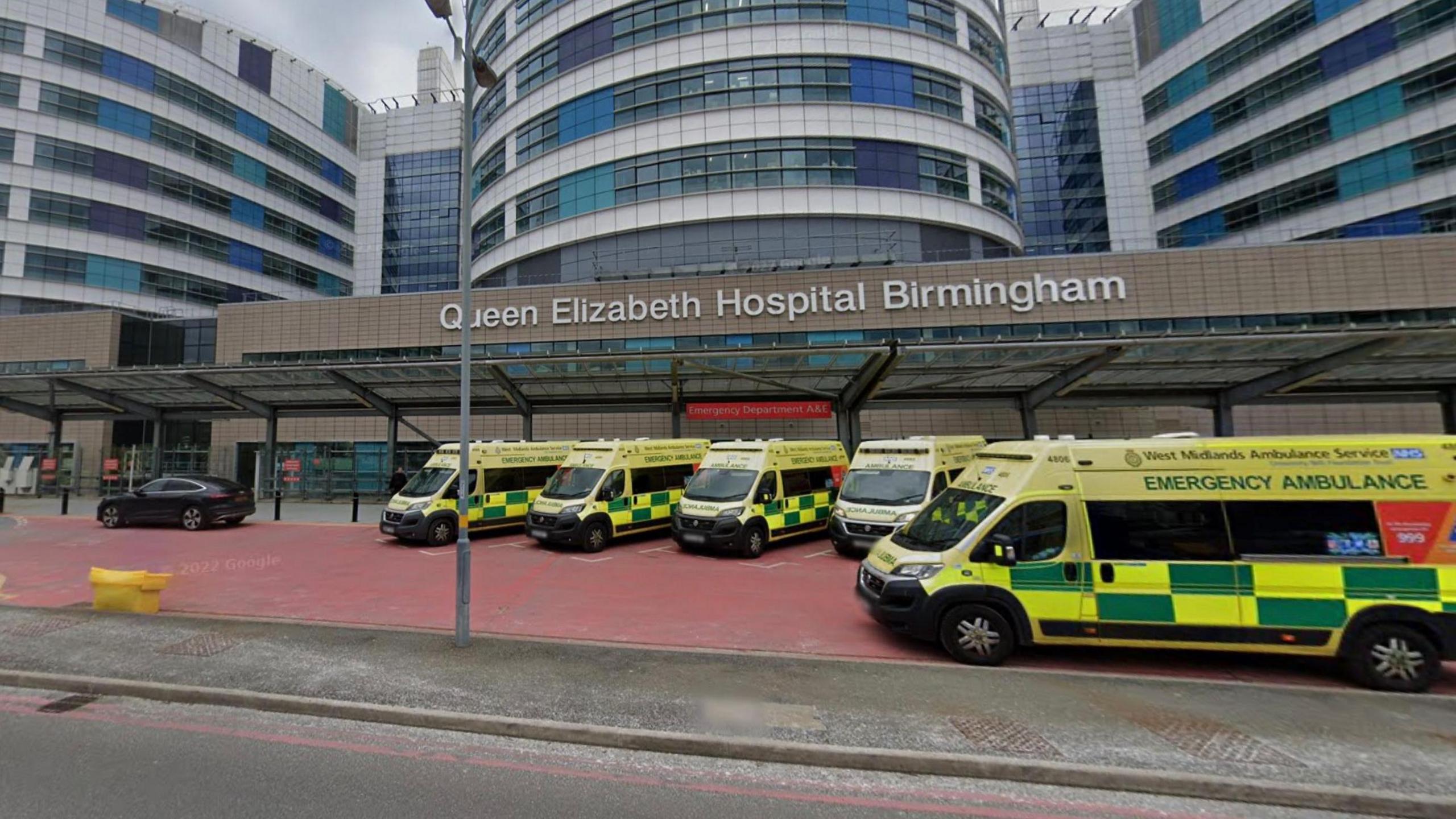
The trust manages four acute hospitals, including Queen Elizabeth Hospital Birmingham
- Published
A hospital trust criticised for its toxic environment has made many improvements to its leadership, inspectors said.
The Care Quality Commission (CQC) has rated University Hospitals Birmingham (UHB) as good following its latest inspection. Two years ago, after much criticism from staff, it was rated as inadequate.
Staff had previously said a climate of fear was putting patients at risk, with a report finding evidence of bullying.
The trust said it would be unrelenting in its attempts to root out remaining "poor behaviours" and it takes the findings of the report very seriously.
Each of the trust's hospitals, Heartlands Hospital, Good Hope Hospital, Queen Elizabeth Hospital Birmingham and Solihull Hospital were visited as part of the inspection by the health watchdog.
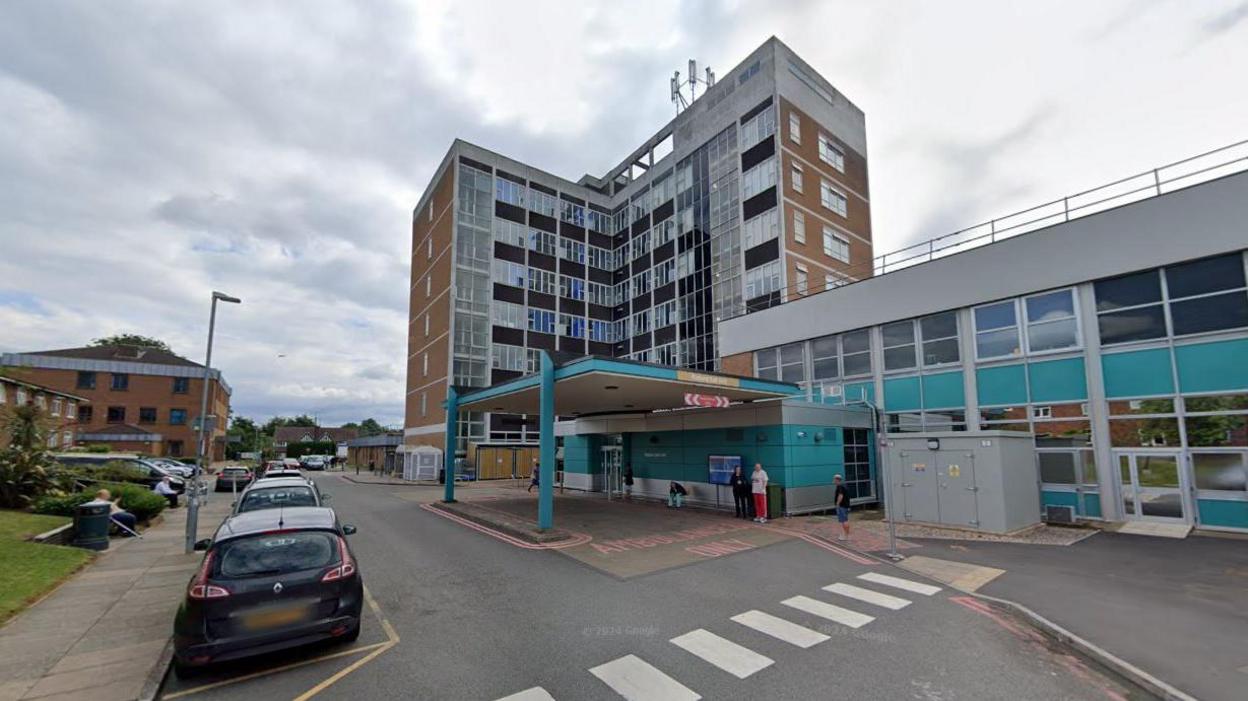
The Care Quality Commission (CQC) visited the trust's sites, including Good Hope Hospital, earlier this year
The CQC said it also sat down in conversation with each of the senior leadership teams and held focus groups for members of staff to speak about their experiences.
Three major reviews of the hospital trust were commissioned in December 2022, after a BBC Newsnight probe was told a climate of fear among staff.
An independent review in September 2023 found more than half of staff said they felt bullied or harassed, leading to UHB apologising for "unacceptable behaviours".
A UHB spokesperson previously said it needed to learn following Dr Vaish Kumar's death after the medic left a suicide note blaming her death entirely on the hospital where she worked.
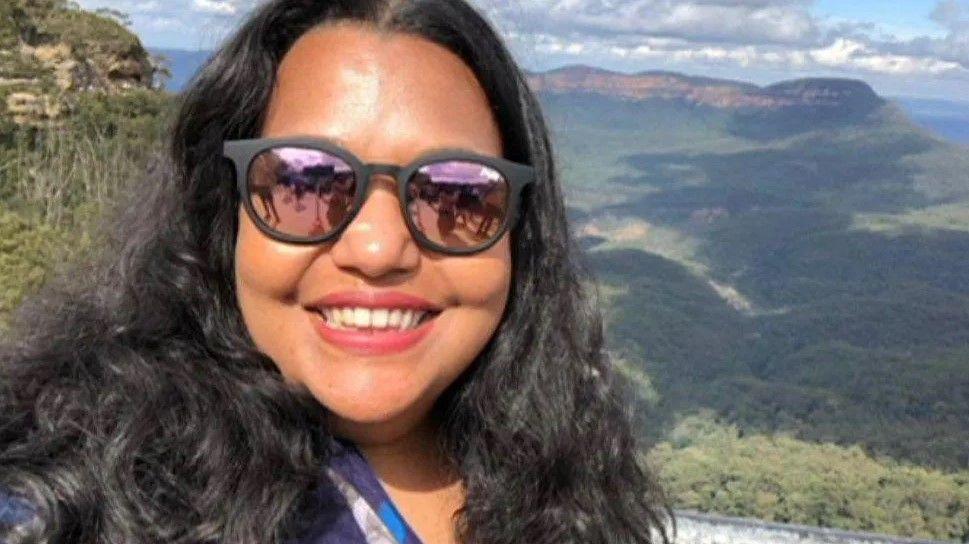
Doctor Vaish Kumar left a suicide note blaming her death entirely on the hospital where she worked
In the CQC's report, inspectors said the trust's rating had been upgraded, following its extensive improvement programme focused on culture, staff wellbeing and support.
Leaders had made improvements to oversight processes and were committed to ensuring every person received the "highest quality and most equitable treatment possible," the CQC said.
It also found leaders supported and encouraged staff to develop their skills and the group of staff networks were strong.
Charlotte Rudge, CQC deputy director of operations in the Midlands, said UHB should be proud of the improvements it had made to leadership, culture and governance.
"At the previous inspection, we told the trust leadership they needed to do more work to significantly improve culture and staff well being," she said.
"In response, they introduced a comprehensive plan and took action to make significant improvements in this area."
The trust now has a senior management structure for each of its hospitals, with a hospital executive director and team present, she added.
However, inspectors found leaders still needed to do more work to reduce waiting times, crowding and handover delays in the trust's three emergency departments.
Some staff were still concerned about being identified if they raised concerns and some still talked about experiencing bullying and intimidation, the report said.
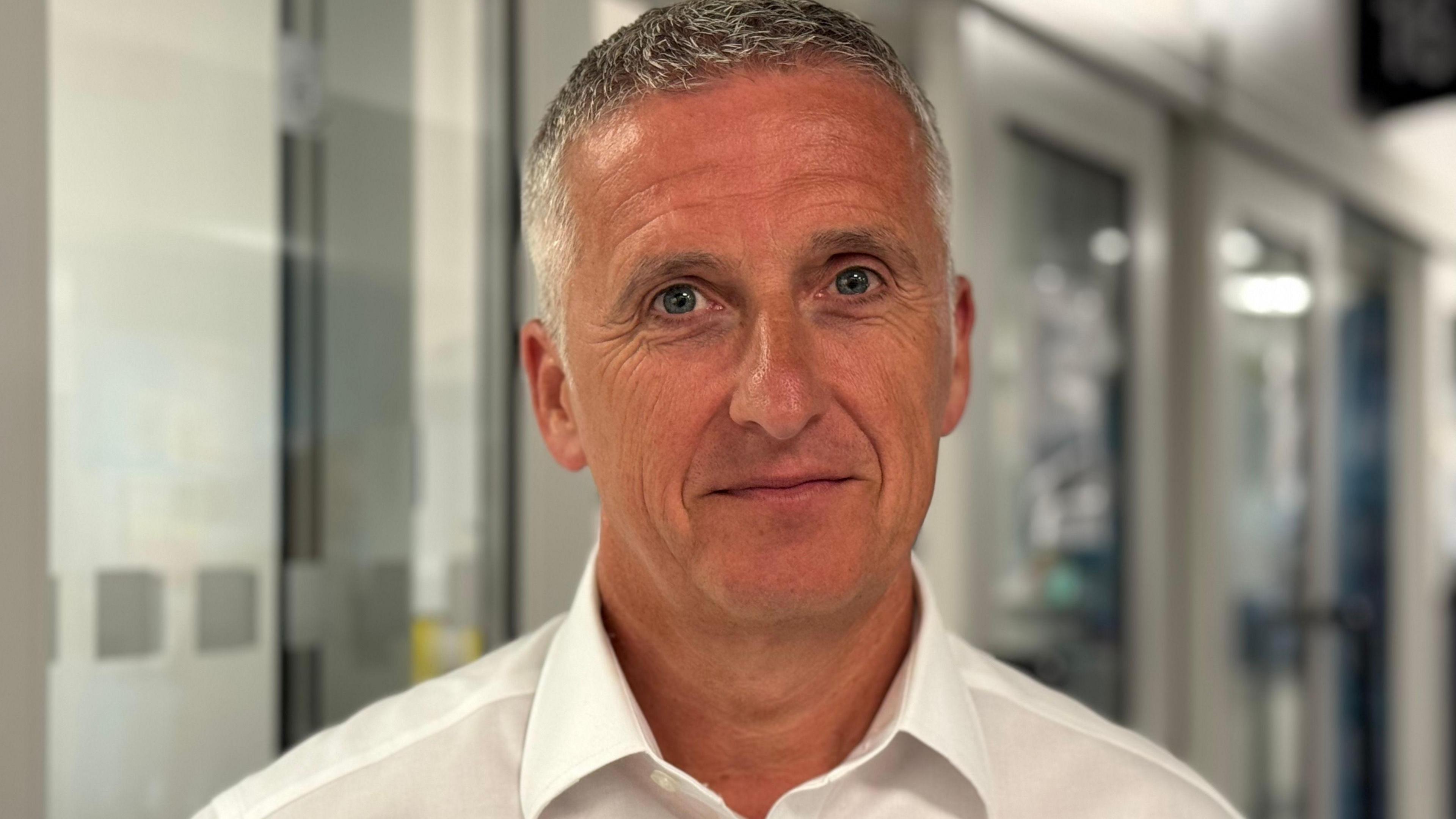
UHB chief executive, Jonathan Brotherton, said there was a "lot more to do"
UHB chief executive Jonathan Brotherton said the trust would be unrelenting in attempts to make sure that "we root out all the remaining poor behaviours that exist in this organisation".
"We've made a great start at doing that and this report provides clear evidence and judgement that this organisation is good when it comes to how well led it is, but it does also show that there's a lot more to do and we know that and we take that very seriously," he told the BBC.
Reacting to the news, Birmingham Edgbaston MP Preet Gill told the BBC she was very pleased with the outcome.
"This is a trust which has gone from inadequate to good, so there is a lot to celebrate," she said.
"I'm very grateful and thankful to everybody that works across the trust in putting in the hard yards to get to where we are."
However, she said there was "still much more to do".
"We still know there are bullying concerns - so there is a lot more to do, and I shall work with the hospital to make sure we see rapid, swift change," she said.
The vice chair of Healthwatch Birmingham and Solihull, Dr Janet Bailey, told the BBC: "It's very encouraging. The report shows real progress, and that's important.
"As an advocate for patients, we want to praise any progress that we see and celebrate that."
Analysis, Joanne Writtle, Health Correspondent
Jumping two ratings from the worst possible of "inadequate" to "good" will be seen as a significant step forwards for a hospital trust that has come under fire over a toxic culture and bullying in the past.
Last year the Care Quality Commission issued a warning notice to University Hospitals Birmingham, telling bosses to resolve "… longstanding issues with culture, staff wellbeing and staff safety and any form of unacceptable behaviour".
Today's report found it had met the warning notice by making "significant improvements" and had created an "open and supportive culture".
But CQC inspectors, who spent 10 weeks there earlier this year, still found "small pockets" of staff "experiencing bullying and intimidation".
About 24,000 people work at University Hospitals Birmingham NHS Foundation Trust – and according to the CQC this makes it the biggest employer in the West Midlands.
The CQC now only rates how well led a whole Trust is, saying this "reflects the strong correlation CQC has found between the quality of leadership at an organisation and the quality of care being delivered".
But there are still reports on individual hospitals – and there are four which come under the umbrella of one of the biggest teaching trusts in the country, the Queen Elizabeth, Heartlands, Good Hope and Solihull. The hospitals treat two million patients a year in outpatients alone.
In the last week, Heartlands has been told maternity safety is inadequate and that emergency care must improve. And an inspection at the Queen Elizabeth Hospital found that both emergency care and surgery needed to improve.
Get in touch
Tell us which stories we should cover in Birmingham and the Black Country
Follow BBC Birmingham on BBC Sounds, Facebook, external, X, external and Instagram, external.
- Published27 September 2023
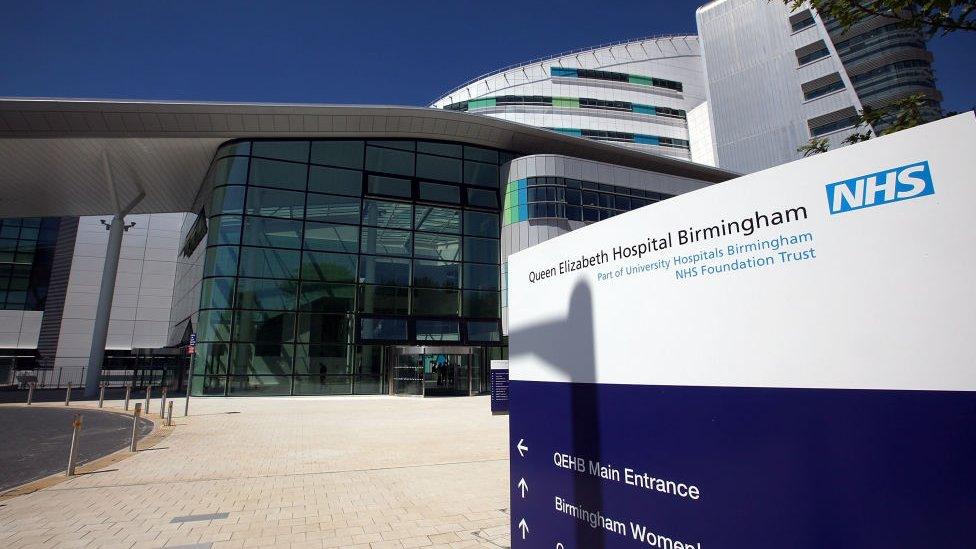
- Published29 August 2023
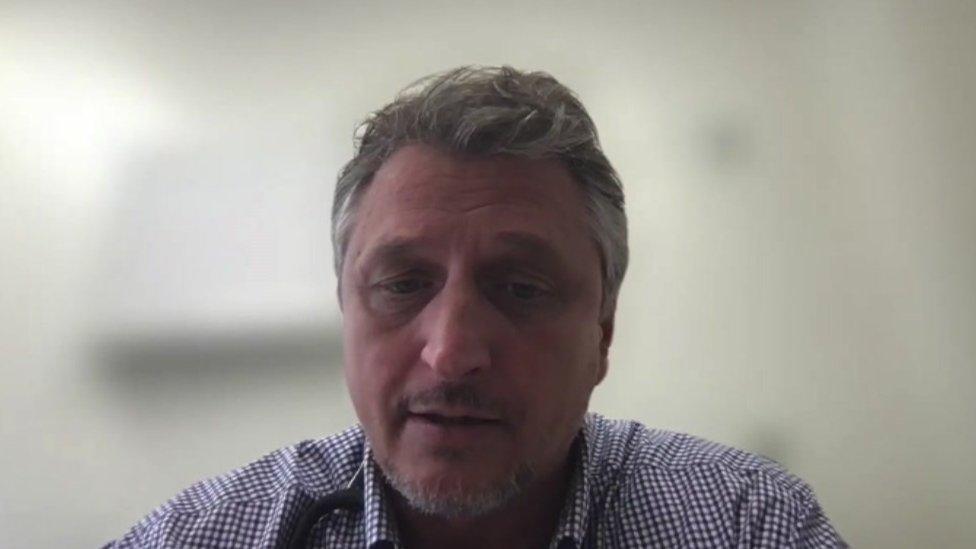
- Published29 March 2023
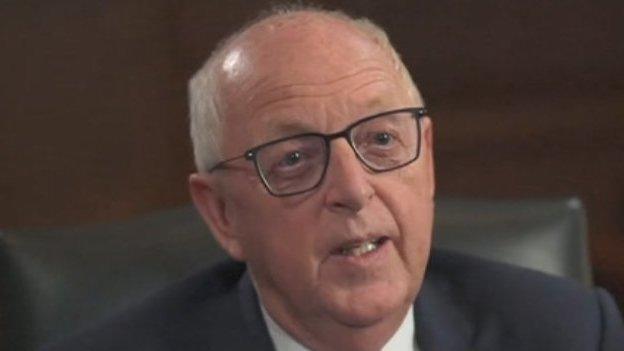
- Published9 December 2022
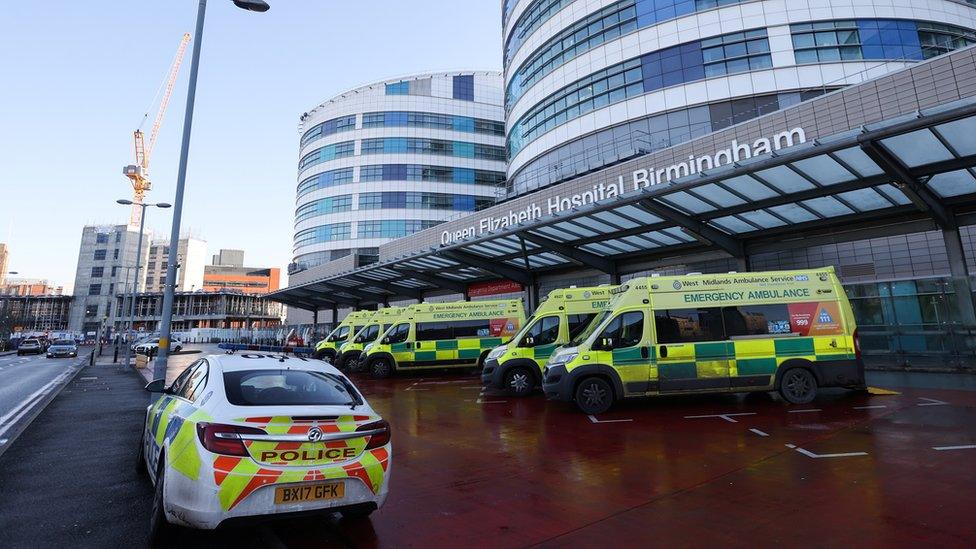
- Published1 December 2022
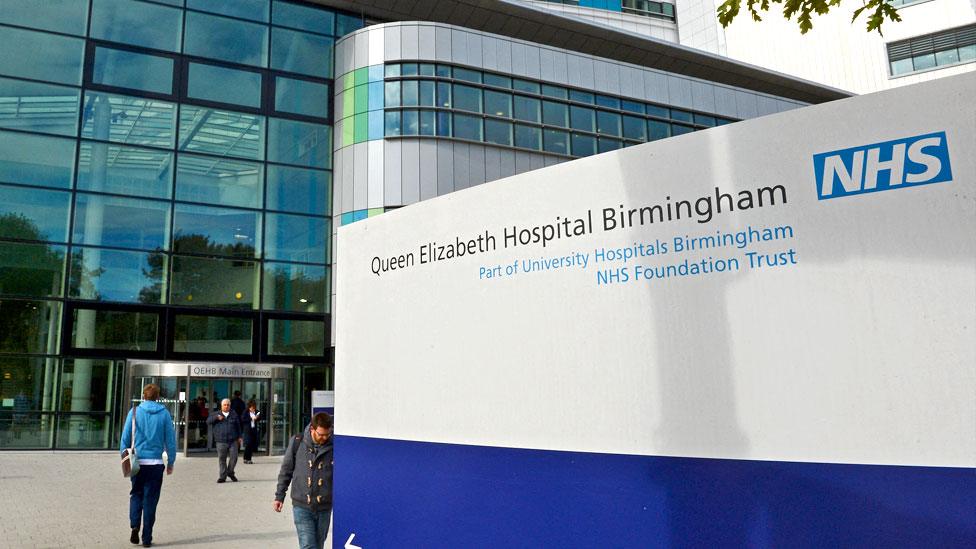
- Published28 August
